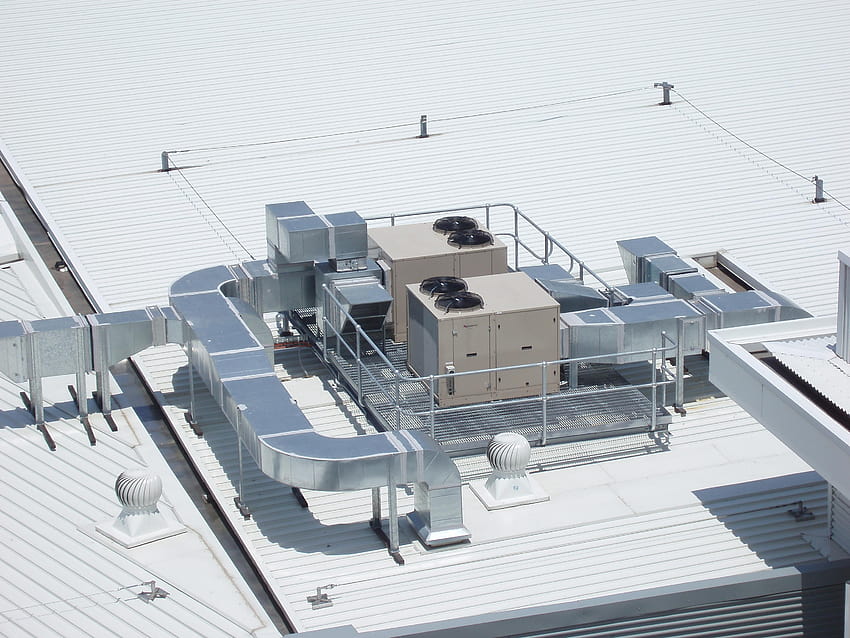Chill or Thrill: Mastering Your Home's Heating and Air Conditioning Needs
Chill or Thrill: Mastering Your Home's Heating and Air Conditioning Needs
Blog Article

When it comes to creating a comfortable living environment, few factors play as crucial a role as heating and air conditioning. The right balance of temperature can turn a house into a home, making it an inviting space for family, friends, and guests. But navigating the complexities of your home's heating and cooling systems can often feel overwhelming. With various options, technologies, and maintenance needs, how do you ensure that your home remains a sanctuary, no matter the season?
Understanding your heating and air conditioning needs is essential for both comfort and energy efficiency. Whether you're looking to install a new system, upgrade an existing one, or simply maintain what you have, knowledge is key. This article will guide you through the essentials of heating and air conditioning, helping you make informed decisions that align with your lifestyle and preferences. So, whether you seek a cozy warmth during winter months or a refreshing coolness in the summer, mastering these systems can help you achieve the perfect balance between chill and thrill.
Understanding HVAC Systems
High-Quality Heating Solutions for Homes
Heating, ventilation, and air conditioning (HVAC) systems play a crucial role in maintaining a comfortable indoor environment. These systems are designed to regulate temperature and air quality within a home, ensuring that residents enjoy optimal conditions throughout the year. In colder months, heating systems work to provide warmth, while air conditioning units cool the air during summer heat. Understanding the components and functions of these systems can help homeowners make informed decisions about maintenance and upgrades, ultimately leading to improved energy efficiency and comfort.
At the core of any HVAC system is a network of components that work together seamlessly. Heating can be achieved through various methods, including furnaces, heat pumps, and electric heaters. Air conditioning systems often utilize refrigerants to cool and dehumidify indoor air, relying on compressors and evaporators. Proper ventilation is equally important, as it helps to introduce fresh air and remove stale air from living spaces. A well-balanced HVAC system ensures that air flows efficiently, providing consistent temperatures and clean air throughout the home.
Homeowners should pay attention to their HVAC systems, as regular maintenance can extend the lifespan of the equipment and improve energy efficiency. Simple tasks such as changing air filters, cleaning ducts, and scheduling professional inspections can prevent costly repairs and enhance performance. Understanding the different types of heating and air conditioning systems available, as well as their specific needs, empowers homeowners to take charge of their comfort levels and adapt their systems to suit seasonal demands.
Energy Efficiency Tips
To optimize the efficiency of your heating and air conditioning systems, start by ensuring your home is well-insulated. Proper insulation in your walls, attic, and floors reduces the workload on your HVAC system by maintaining the desired temperature inside your home. Check for drafts around windows and doors, and seal any gaps using weather stripping or caulk to keep energy costs down.
Regular maintenance is crucial for both heating and air conditioning systems to operate at peak performance. Schedule annual professional inspections to catch any potential issues early and ensure that filters are replaced frequently. Clean air filters help maintain good airflow and efficiency, resulting in lower energy bills and a longer lifespan for your equipment.
Consider upgrading to a programmable or smart thermostat that can adjust temperatures based on your regular schedule. By setting your system to operate only when necessary, you can significantly reduce energy consumption. Many models allow for remote access, letting you adjust settings from anywhere, maximizing both comfort and energy savings without sacrificing convenience.
Troubleshooting Common Issues
Heating and air conditioning systems can often experience a range of issues that may disrupt comfort in your home. One common problem is inadequate heating or cooling. If you notice that certain rooms are not getting warm or cool enough, start by checking your thermostat settings to ensure they are correct. Additionally, inspect the air filters; dirty filters can restrict airflow and cause uneven temperature distribution. If the problem persists, consider having a technician evaluate the ductwork for leaks or blockages.
Another frequent issue is unusual noises coming from your HVAC system. Sounds such as banging, clanging, or hissing can indicate various problems, from loose parts to a malfunctioning compressor. If you hear these noises, it's crucial to turn off your system immediately to avoid further damage. Trying to diagnose the issue can be risky, so contacting a professional for a thorough inspection is typically the safest approach.
Lastly, if you experience frequent cycling, where the system turns on and off more than it should, this could be a sign of an oversized unit or issues with the thermostat. An oversized system may not run long enough to effectively remove humidity, while a malfunctioning thermostat can lead to improper temperature readings. To resolve this issue, you may need to have your unit evaluated for proper sizing and calibration to ensure optimal operation and energy efficiency.
Report this page